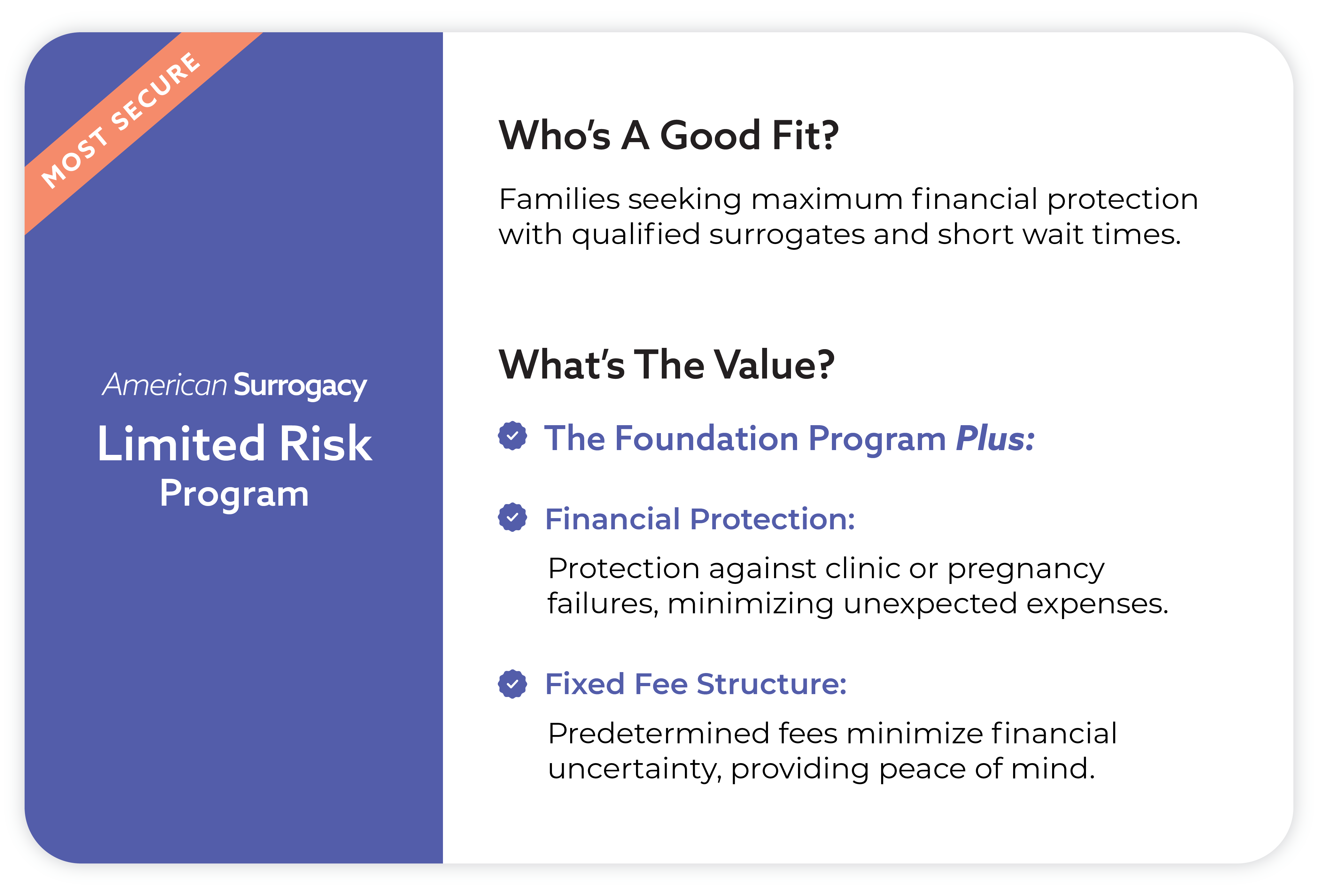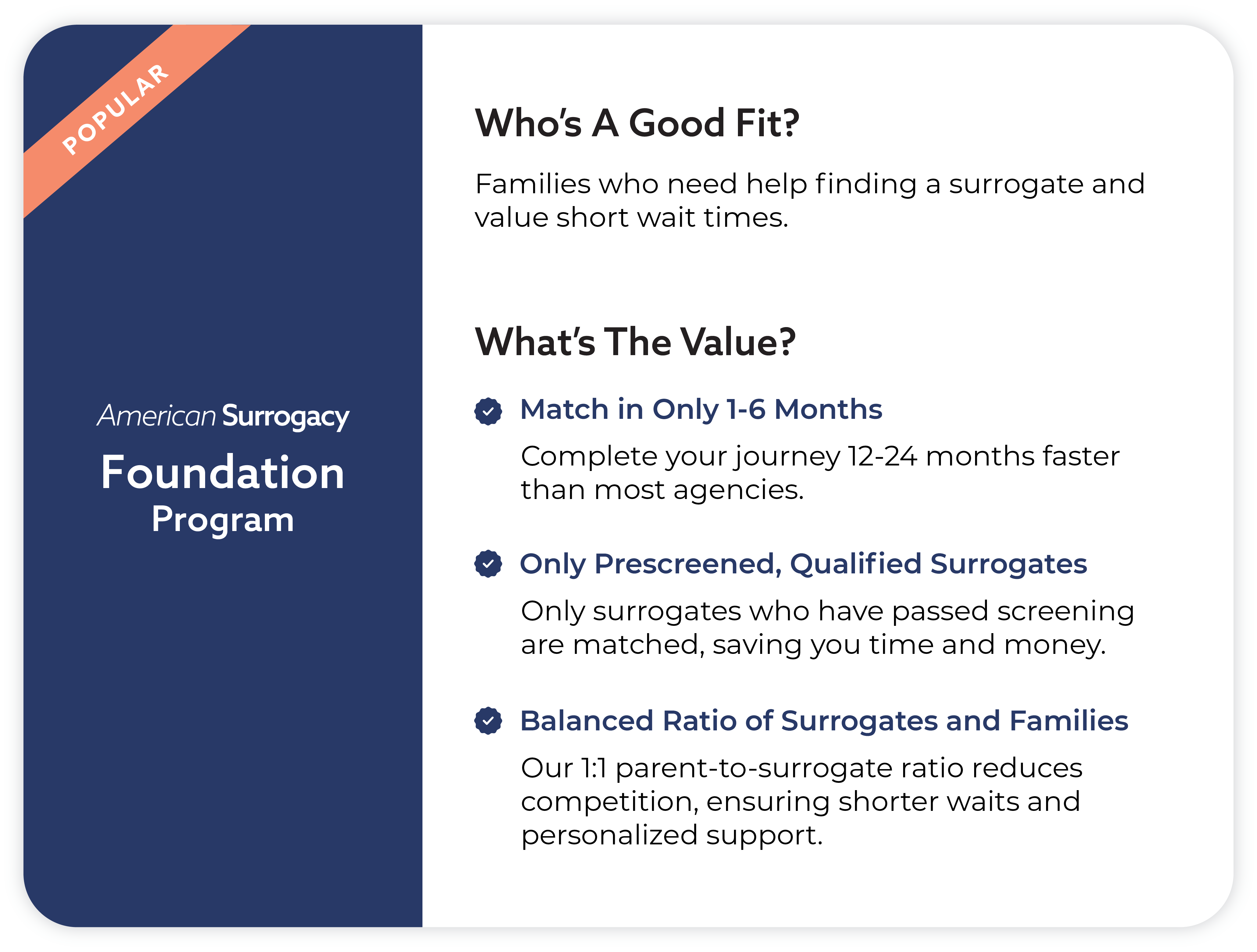Surrogacy has helped thousands of families across Florida grow in love—and you could be next. Whether you're just beginning your journey or looking for the next legal step, understanding Florida surrogacy laws is essential.
With American Surrogacy, you don’t have to navigate this process alone. Our experts work hand-in-hand with experienced surrogacy attorneys to make sure every step is legally secure and emotionally supported. We'll walk you through contracts, parentage, local laws, and more—so you can move forward with confidence.
Surrogacy Laws in Florida
Florida is considered a surrogacy-friendly state, and its legal framework offers protections for both gestational carriers and intended parents. The state's laws explicitly permit gestational surrogacy when at least one intended parent contributes genetic material to the embryo. This is outlined under Florida Statute §742.15.
If you're pursuing altruistic or compensated surrogacy, the law allows for legal contracts that protect everyone's rights. And even if you're located outside the state, American Surrogacy can match you with Florida surrogates—or help you work across state lines.
View Florida Statutes on Surrogacy (§742.15)
Is Paid Surrogacy Legal in Florida?
Yes. Florida law allows for reasonable compensation to be paid to surrogates for living expenses, medical costs, and other services provided during pregnancy. This makes Florida a strong option for intended parents and surrogates alike.
American Surrogacy ensures all compensation agreements are ethically and legally sound. Because we’re a national agency, we also provide flexibility—so you can match with a surrogate in any surrogacy-friendly state if your preferences or legal needs shift.
Learn more about surrogate compensation.
Are Surrogacy Contracts Enforceable in Florida?
Yes. Florida enforces surrogacy contracts under specific statutory guidelines. These agreements are legally binding and must be executed before embryo transfer. To be enforceable, they must include terms about:
- The surrogate relinquishing parental rights
- Intent to establish legal parentage
- Compensation arrangements
- Medical consent and procedures
American Surrogacy partners with trusted surrogacy attorneys in Florida to ensure every contract is compliant and supportive of your goals.
Surrogacy Contract Checklist
Every Florida surrogacy contract should include:
- Names and consent of both parties
- Intent to create a legal parent-child relationship
- Terms of compensation
- Custody and legal parentage expectations
- Medical decision-making authority
- Agreement on termination or abortion scenarios
- Confidentiality and communication expectations
When Do I Need a Surrogacy Contract in Florida?
In Florida, your surrogacy contract should be finalized after you've matched with your surrogate but before any medical procedures begin. This typically happens before the embryo transfer process.
Learn more about the timeline: How Long Does Surrogacy Take?
How Will American Surrogacy Support Me During the Contract Stage?
We’ll guide you through the legal contract process with:
- Referrals to vetted Florida surrogacy attorneys
- Guidance on state-specific requirements
- Surrogate screening for legal compatibility
- Coordination between all parties to ensure smooth negotiations
Before we even show you a surrogate profile, we evaluate Florida’s surrogacy laws and ensure your match will be legally secure.
LGBTQ+ Surrogacy Laws in Florida
Florida law supports LGBTQ+ intended parents. Same-sex couples can pursue surrogacy and obtain pre-birth orders to establish parentage. Second-parent adoptions are generally not required when legal steps are followed correctly.
Abortion Laws in Florida and Termination Agreements
As of 2025, Florida restricts abortion after 15 weeks in most cases. This matters in surrogacy because contracts often include termination agreements. These agreements outline who makes decisions and under what circumstances a pregnancy could be terminated.
If Florida’s laws conflict with your personal beliefs, working with a national agency like American Surrogacy gives you options—we can help you pursue surrogacy in a state with more aligned legal standards.
Surrogacy Laws for Establishing Parentage in Florida
Parentage is typically established through a pre-birth order in Florida. This legal step ensures that intended parents are listed on the birth certificate from day one.
For LGBTQ+ couples, this process is available, but it's critical to have the right legal guidance in place.
How to Get a Pre-Birth Order in Florida
- When: Filed during the second trimester
- Who: Intended parents and their attorney
- Hearing Required?: Usually not
- Birth Certificate Timing: Typically issued within 1–2 weeks after delivery
International Surrogacy Laws in Florida
Florida does not restrict international surrogacy arrangements. International intended parents can obtain a pre-birth order here, but must consult an attorney about how their home country views surrogacy and parentage.
The Role of a Surrogacy Attorney in Florida
A surrogacy attorney will:
- Draft or review contracts
- File parentage orders
- Navigate state-specific laws
- Protect your rights in any legal proceedings
Need a surrogacy attorney? We can help you find one today.
How Much Does a Surrogacy Lawyer Cost?
Legal costs vary by provider but typically range from $5,000–$15,000. With American Surrogacy, these fees are already built into your program, so you don’t have to worry about hidden expenses.
Find a Surrogacy Attorney Near Me
Here are some surrogacy attorneys in Florida to consider:
Karen Persis focuses her practice on assisted reproductive technology law, surrogacy law, egg donation law, and adoption throughout Florida. She represents intended parents, surrogates, and donors in drafting and negotiating agreements related to surrogacy, egg donation, sperm donation, and embryo donation. Karen is passionate about helping individuals and couples build their families and obtain legal recognition of these bonds.
- Phone: (407) 228-2864
Roia Barrios is dedicated exclusively to Assisted Reproductive Technology law, assisting intended parents in creating their families. Her practice includes gestational surrogacy agreements, preplanned adoptions, and egg, sperm, and embryo donation agreements. Roia emphasizes the importance of thoroughly drafted contracts to prevent legal issues during or after the surrogacy process.
- Phone: (813) 731-4667
Explore Our Surrogacy Programs in Florida

American Surrogacy offers three main programs:
Limited Risk Program – Ideal for families seeking comprehensive support who want to be protected financially.

Foundation Program – For families who want to pay as they go.

Independent Program – offers flexibility to find your own surrogate while still getting support.

FAQ: Legal Aspects of Surrogacy in Florida
Is IVF insurance coverage required in Florida?
No, Florida does not mandate IVF insurance coverage. States that do include Illinois, Maryland, and Massachusetts.
Is an embryo considered a person in Florida?
Florida does not legally define embryos as people. They are considered property under current law.
Is traditional surrogacy legal in Florida?
Yes, but it is less common due to potential legal complexities, and generally not recommended. Florida’s statutes are better suited for gestational surrogacy.
Do sperm and egg donors have parental rights in Florida?
No. Per Florida Statute §742.14, donors of sperm or eggs relinquish parental rights unless otherwise agreed in writing.
What disqualifies you from surrogacy?
Medical ineligibility, lack of legal capacity to contract, or certain criminal history.
Is surrogacy covered by insurance in Florida?
Some insurance plans may offer partial coverage, but most intended parents need a separate surrogacy insurance plan.
What states have banned surrogacy?
Currently, no U.S. states have a full ban on gestational surrogacy, but legal barriers exist in some states.
What are the rules for being a surrogate in Florida?
You must pass medical and psychological screening, be financially stable, and be a legal adult.
Is there an IVF tax credit in Florida?
No, Florida does not offer a state-level IVF tax credit.
Ready to begin your Florida surrogacy journey?
The information provided in this article is not intended as legal advice. Florida surrogacy laws are always subject to change. American Surrogacy recommends you contact a local surrogacy attorney in Florida to learn more about the current legal regulations on this family-building process.